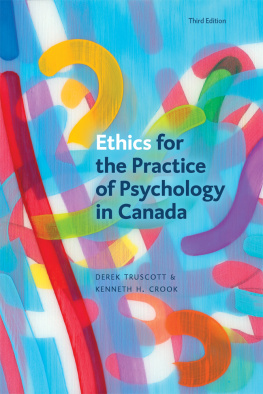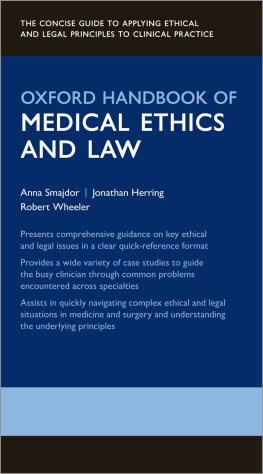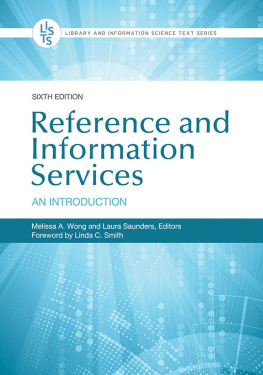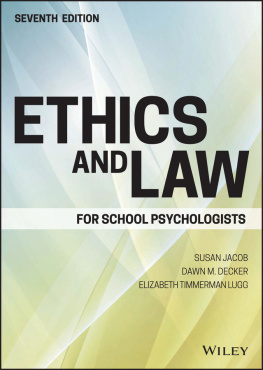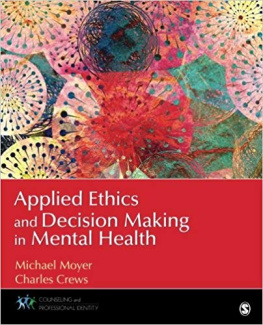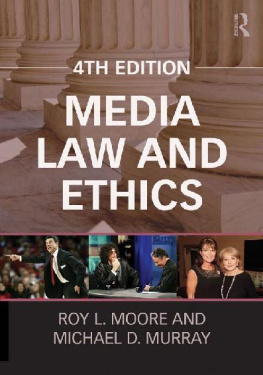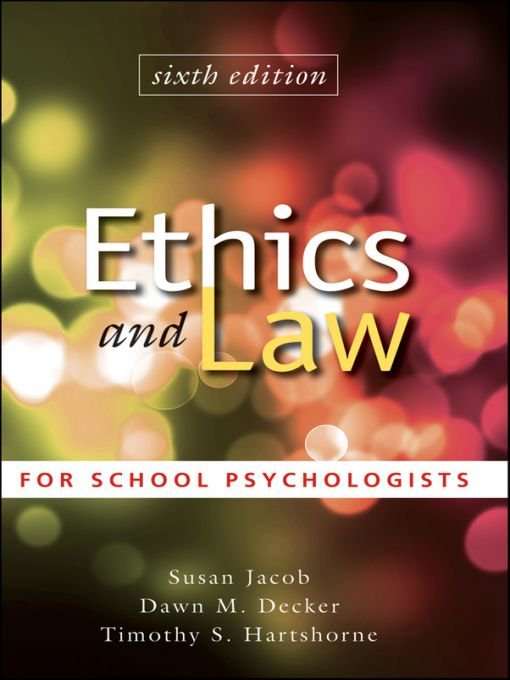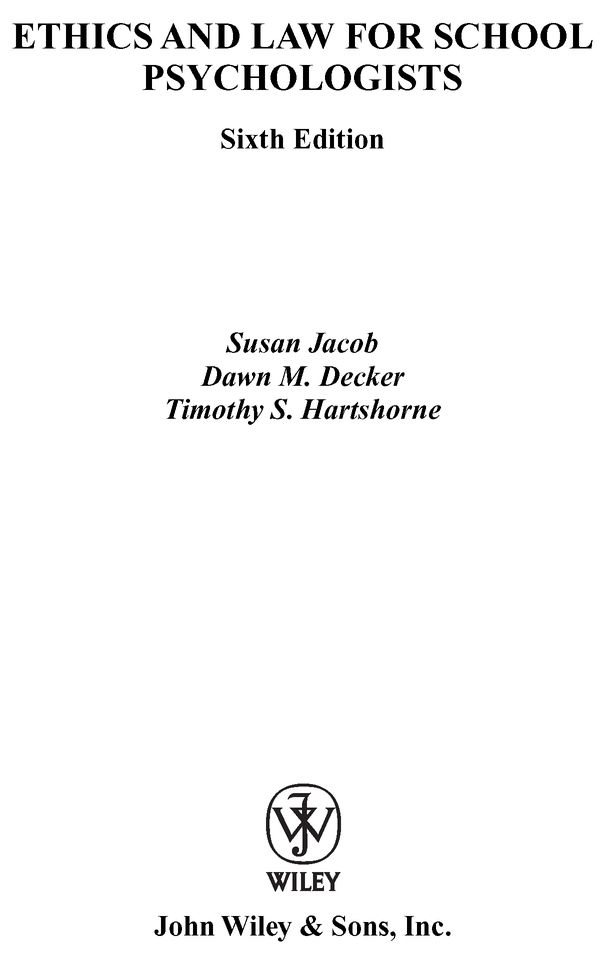Table of Contents
This book is dedicated to the memory of Tim and Nancy Hartshornes children, Michael David Salem Hartshorne (1984-1992) and Katherine Swift Hartshorne (1991-1992)
And to the memory of Susan Jacobs son, Andrew Alan Neal (1982-2009)
The brevity of their lives reminds us just how precious are all children.
Preface
There are a number of excellent texts, journal articles, and book chapters on ethics in psychology, legal issues in school psychology, and special education law. However, our experience as school psychology trainers suggested a need for a single sourcebook on ethics and law specifically written to meet the unique needs of the psychologist in the school setting. Consequently, Ethics and Law for School Psychologists was written to provide up-to-date information on ethical principles and standards and law pertinent to the delivery of school psychological services. Our goals for this sixth edition of the book remain unchanged. We hope that the book will continue to be useful as a basic textbook or supplementary text for school psychology students in training and as a resource for practitioners.
As stated in the preface to the first edition, one goal in writing the book was to bring together various ethical and legal guidelines pertinent to the delivery of school psychological services. We also introduce an ethical-legal decision-making model. We concur with the suggestion that the educated practitioner is the best safeguard against ethical-legal problems (Diener & Crandall, 1978; Koocher & Keith-Spiegel, 2008). School psychologists with a broad knowledge base of ethics and law are likely to anticipate and prevent problems. Use of a decision-making model allows the practitioner to make informed, well-reasoned choices in resolving problems when they do occur (Eberlein, 1987; McNamara, 2008; Tymchuk, 1986).
WHATS IN THE BOOK
Chapter 1 provides an introduction to ethical codes, an ethical-legal decision-making model, and the four broad ethical principles of respect for the dignity and rights of all persons, professional competence and responsibility, honesty and integrity in professional relationships, and responsibility to schools, families, communities, the profession, and society. We also describe ethics committees and sanctions for unethical conduct. Chapter 2 provides an introduction to the legal underpinnings of school-based practice and to public school law that protects the rights of students and their parents. We also address certification and licensure of school psychologistsmechanisms that help to ensure that psychologists meet specified qualifications before they are granted a legal sanction to practice. The chapter closes with a brief discussion of tort liability of schools and practitioners. In Chapter 3, we discuss privacy, informed consent, confidentiality, privileged communication, and record keepingethical-legal concerns that cut across all of the school psychologists many roles.
The remaining chapters focus on ethical-legal issues associated with specific roles. Chapters 4 and 5 focus on the delivery of services to students with disabilities. Psychoeducational assessment within the context of a school psychologist-client relationship is discussed in Chapter 6. Chapter 7 addresses school-based interventions, including classroom interventions for students who require academic and behavioral support to succeed in the general education classroom, and therapeutic interventions such as counseling. Chapters 8 and 9 focus on indirect services. We discuss ethical-legal issues associated with consultative services to teachers and parents in Chapter 8 and systems-level consultation in Chapter 9. A number of special consultation topics are covered in Chapter 9, including the ethical-legal concerns associated with student proficiency assessment programs; school entry and grade retention decisions; efforts to foster safe schools (discipline, school violence prevention, and the problem of harassment and discrimination); and schooling for pupils with other special needs (limited English proficiency, gifted and talented students, and students with communicable diseases). In Chapter 10, ethical-legal issues associated with research are discussed, and Chapter 11 provides a brief overview of issues associated with school-based supervision of school psychologists in training. And, finally, in the Epilogue, we discuss advocacy.
WHATS NOT IN THE BOOK
We have chosen to focus on ethical-legal issues of interest to current and future school-based practitioners. Consistent with this focus, we did not include a discussion of issues associated with private practice. Interested readers are encouraged to consult Fisher (2003); Koocher and Keith-Spiegel (2008); Knapp and VandeCreek (2006); and Sales, Miller, and Hall (2005). We also did not address the legal rights of psychologists as employees in the public schools.
SIXTH EDITION REVISIONS
There have been a number of changes in codes of ethics and law pertinent to the practice of school psychology since we completed work on the fifth edition in 2006. Perhaps of most importance, the National Association of School Psychologists (NASP) adopted a revised version of its Principles for Professional Ethics in March 2010, and the language of the new code was incorporated into this edition of the book. In addition, many other changes were made in the content and organization of the book. Chapter 3 includes new material on the management of sensitive private student information and a revised section on privileged communication. Chapters 4 and 5 now address ethical and legal issues in the education of pupils with disabilities. The final federal regulations implementing Part B of the Individuals with Disabilities Education Improvement Act of 2004 are cited in Chapter 4, and Chapter 5 was updated to include changes in school law following the passage of the Americans with Disabilities Amendments Act of 2008. In this edition, Chapter 6 addresses school psychological assessment of individual students. Chapter 7 was expanded to provide broader coverage of ethical-legal issues in school-based intervention, including a new section on interventions in the general education classroom. A discussion of advocacy appears in the revised Epilogue.
Throughout the text we incorporated citations to recent publications. However, we also continued to cite older works that provided the foundation for more recent scholarship in the area of ethics and law for school psychologists. As Koocher and Keith-Spiegel (2008, p. 524) observed, ignoring important older publications on a topic is disrespectful of the efforts of early scholars. Furthermore, researchers and writers who pass over earlier work may conclude that they discovered something fresh and innovative when in fact the same findings were published many years ago.
An updated instructors manual and Microsoft PowerPoint slides are available for trainers who adopt the textbook. These supplements are available by contacting your John Wiley & Sons sales representative (visit http://www.wiley.com).
A number of the changes made in the sixth edition were suggested by readers. We welcome your suggestions for improving future editions of Ethics and Law for School Psychologists. Please contact Susan Jacob, Professor of Psychology, 104 Sloan Hall, Central Michigan University, Mt. Pleasant, MI 48859. E-mail: jacob1s@cmich.edu.


